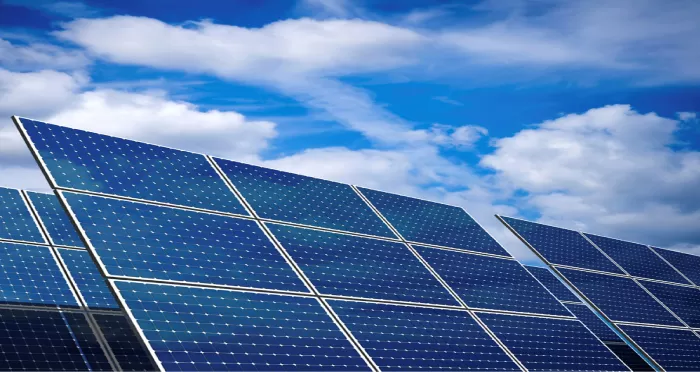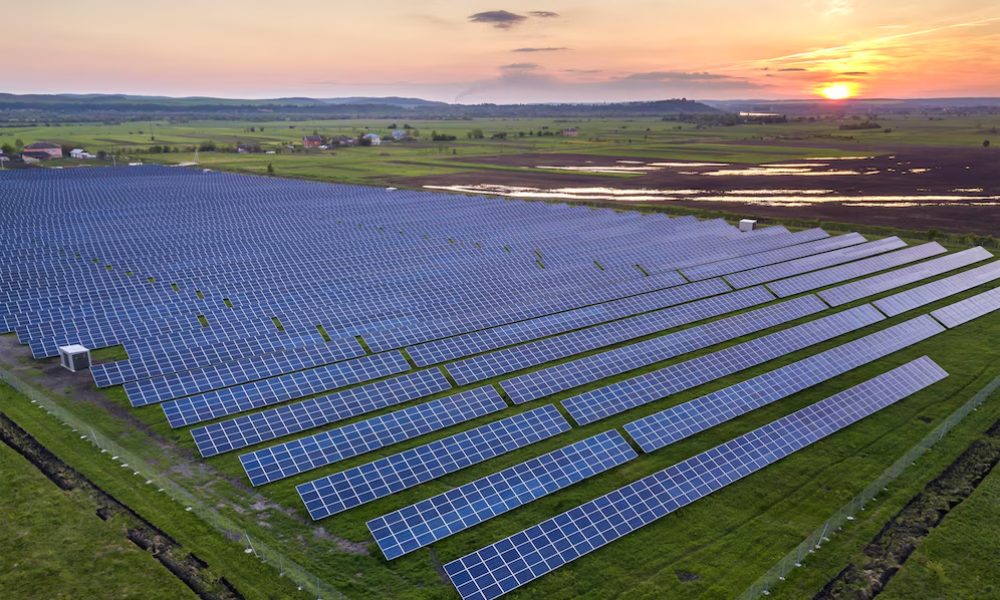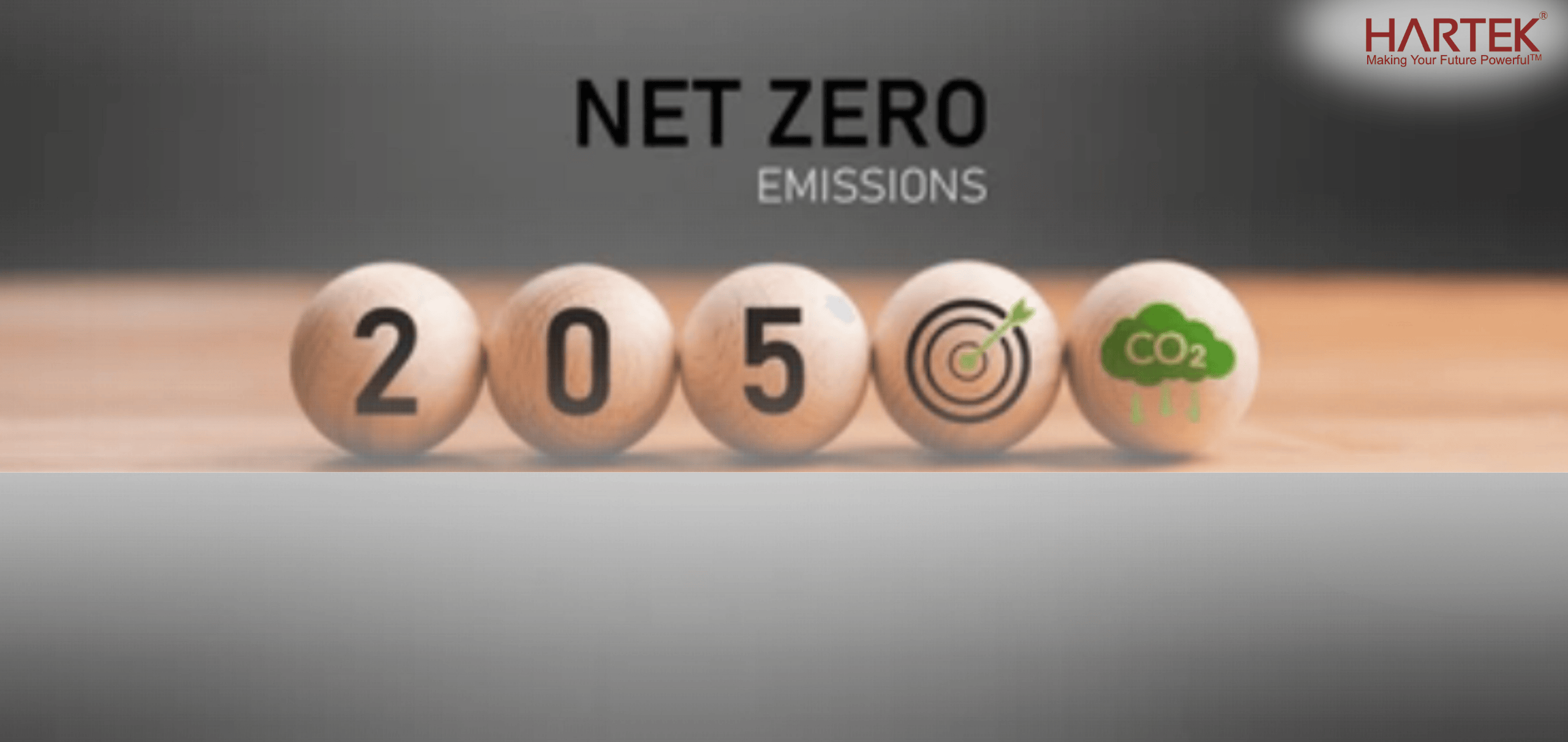In a resounding endorsement of renewable energy, India’s recent budget has unveiled a robust financial framework, positioning the country at the forefront of sustainable and clean energy initiatives. Let’s explore the key highlights and their implications for India’s renewable energy landscape.
1. A Strategic Shift in Solar Power (Grid) Sector:
The allocation of over Rs 11,500 crore for Solar Power (Grid) projects is a transformative step towards harnessing the immense potential of solar energy. Notably, the budget earmarks Rs 10,000 crore for the fiscal year 2024-25, marking a remarkable 110% surge from the revised estimates of Rs 4,757 crore. This significant investment reflects the government’s acknowledgment of solar power as a key element in achieving the nation’s energy goals. Hartek Group remains committed to driving this transition by delivering cutting-edge solar infrastructure and smart energy solutions.

2. Solar Rooftop takes the Limelight:
Through rooftop solarization, 10 million households will be enabled to obtain up to 300 units free electricity every month. This is expected to yield savings of up to Rs 15,000 to Rs 18,000 annually for households from free solar electricity.
3. National Green Hydrogen Mission Gains Momentum:
A standout feature is the five-fold surge in budgetary allocation for the National Green Hydrogen Mission, reaching Rs 600 crore for the fiscal year 2024-25. This mission, launched in 2023 with an initial outlay of 19,744 Cr, aims to position India as a global hub for manufacturing clean energy. The increased funding underscores the government’s commitment to promoting green hydrogen as a crucial component of India’s energy transition.
4. Wind Power Sector Receives a Boost:
The budget allocates Rs 930 crore for the wind power sector in the fiscal year 2024-25. While this may seem modest, the 1.5% increase from the previous year’s allocation signifies the government’s dedication to maintaining a diversified renewable energy portfolio. Wind power’s role in the overall energy mix is recognized, ensuring a holistic approach to sustainable energy generation. Strategic allocation of Viability Gap Funding for harnessing offshore Wind Energy with an initial capacity of 1GW aligns with the overall vision of sustainable growth.
5. Comprehensive Measures for Achieving Net-Zero by 2070:
The budget outlines key measures to achieve net-zero by 2070, emphasizing offshore wind energy potential, coal gasification, liquefaction capacity, and a significant push for electric vehicles (EVs). The focus on rooftop solarization, enabling 10 million households to obtain free electricity monthly, showcases a commitment to making renewable energy accessible and beneficial for the masses.
6. Reinforcing Self-Sufficiency for Natural Gas:
Budget set to establish coal gasification and liquefaction capacity by 100 MT by 2030. This move is expected to reduce India’s dependence on imports of natural gas, methanol and ammonia, in a push towards cleaner fuel alternatives.
7. Holistic Approach to Environmental Sustainability:
The budget goes beyond financial allocations by promoting a holistic approach to environmental sustainability. Financial assistance for biomass aggregation machinery, innovative bio-manufacturing schemes, and mandatory blending of compressed biogas underscore India’s dedication to cleaner fuels and reduced carbon emissions.
These investments will catalyze a series of Innovations and attract both domestic and international investors to further consolidate India’s position as a global leader in renewable energy and set a precedent for other economies to follow suit for climate change.
As the government sets the stage for a cleaner and greener future, the Hartek Group stands ready to play a pivotal role in realizing the shared vision of a sustainable and resilient energy landscape for India. The increased financial support for solar, hydrogen, and wind projects signifies a positive step towards achieving a more sustainable and environmentally conscious future.
FAQ’s:-
1. How does India’s budget support renewable energy?
India’s budget increases funding for solar, wind, and hydrogen projects, promoting clean energy and sustainability.
2. What is the impact of rooftop solarization on households?
Rooftop solarization allows 10 million households to get up to 300 units of free electricity per month, saving ₹15,000-₹18,000 annually.
3. What is the National Green Hydrogen Mission?
It’s an initiative with a ₹600 crore allocation to position India as a global leader in clean hydrogen production.
4. How does the budget promote wind energy?
₹930 crore has been allocated to wind power, including funding for offshore wind projects to diversify India’s renewable energy sources.
5. How will India achieve net-zero emissions by 2070?
The budget emphasizes offshore wind, EVs, coal gasification, and biofuel initiatives to reduce carbon emissions and promote sustainability.
Share:
Explore More
Keep up-to-date with the most trending news stories that are shaping the world today.








